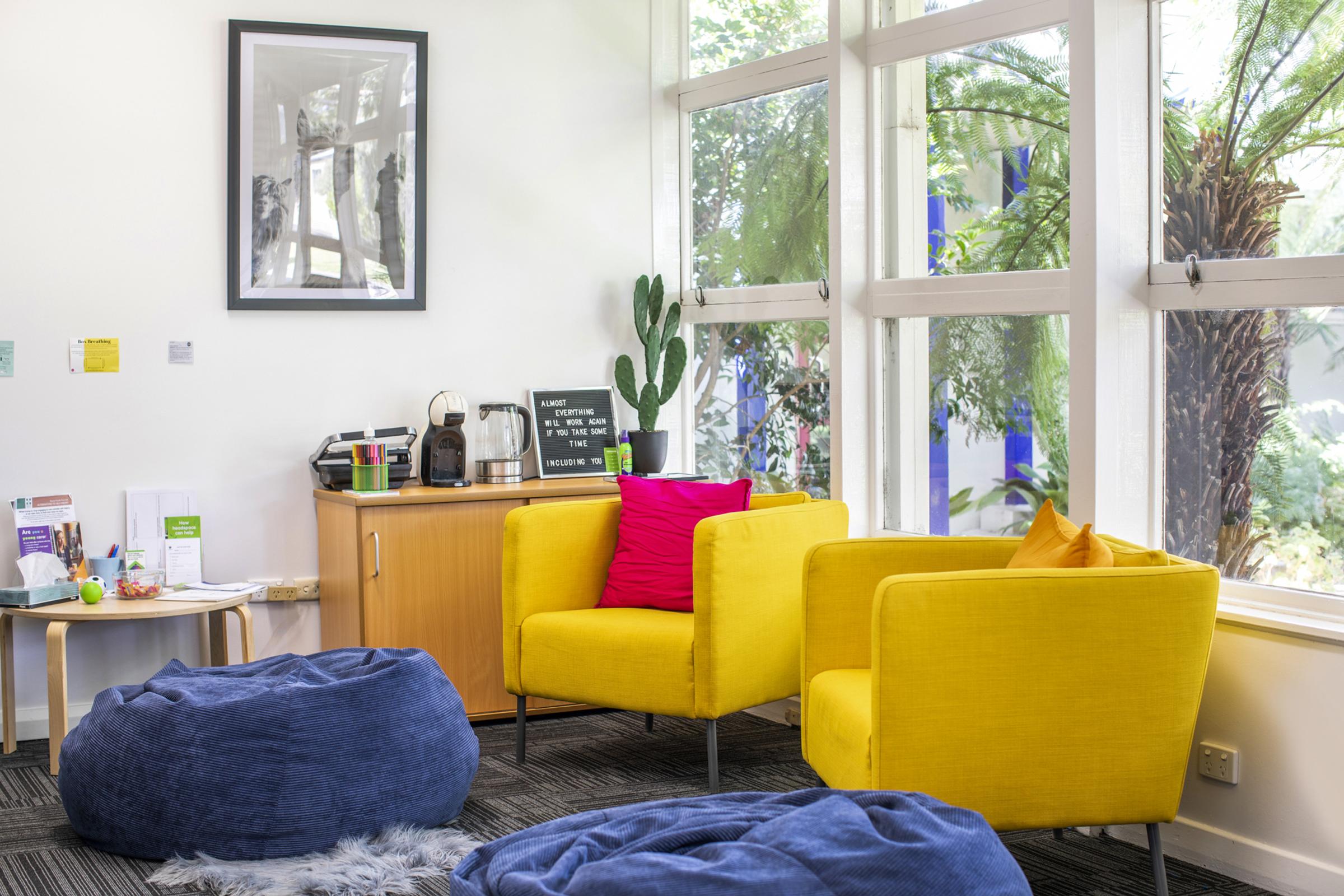Student Wellbeing
The Wellbeing Team: Felicity Brown, Isabella Farrar, Lavinia Cai, Pat Pekin, Lucy Wright
Assistant Principals - Cody Gunn and Michelle Lynch

Student Wellbeing
The Wellbeing Team: Felicity Brown, Isabella Farrar, Lavinia Cai, Pat Pekin, Lucy Wright
Assistant Principals - Cody Gunn and Michelle Lynch


Drop in for fun, free, supervised activities for young people. Chill out, catch up with friends or make new ones!
Details:
When: Fridays, 3:00 - 5:30pm
Where: Peterson Youth Centre, Highett - see map
Who: Young people aged 10 - 17 with a connection to Bayside (live, work, study, recreate).
Cost: Free
www.bayside.vic.gov.au/programs-and-events/friyays


Bayside Youth Ambassadors are young people with big ideas and a passion about making a difference in their community. Represent youth voice in Bayside and meet other like-minded young leaders. Have your say on the things that affect you.
The Bayside Youth Ambassadors are a committee of local young people who aim to:
The committee is open to young people 12 – 25 years who have a connection to the City of Bayside. Meetings will be held Fortnightly on a Tuesday from 5:00 PM to 6:30 PM in person at Sandringham Library.
Applications close 9am Tuesday 12 March
https://www.bayside.vic.gov.au/services/youth/bayside-youth-ambassadors
As we dive into another exciting academic year, it's crucial to remember that your well-being is just as important as your academic success. Achieving a healthy life balance is key to navigating the challenges of a new year and beyond.
Mind and Body Wellness
Mindful Mornings: Begin your day with a moment of mindfulness. Whether it's deep breathing, meditation, or a quick stretch, setting a positive tone in the morning can enhance your focus and mood.
Stay Active: Incorporate physical activity into your routine. Join a sports team, take up a dance class, or simply go for a walk – find what you enjoy to make staying active a fun part of your daily life.
Academic Success and Time Management
Effective Study Habits: Discover study techniques that work best for you. Experiment with methods such as flashcards, summarizing information, or creating mind maps to find what suits your learning style.
Prioritize Tasks: Create a to-do list and prioritize tasks based on deadlines and importance. Breaking down larger tasks into smaller, manageable steps can make your workload more manageable.
Social Connection and Support
Friendship and Community: Foster positive relationships with your peers. Surround yourself with friends who uplift and support you, and be there for them in return.
Seek Help When Needed: Don't hesitate to reach out for support when facing challenges. Whether it's talking to a teacher, school counselor, or a trusted adult, seeking help is a sign of strength.
Balancing Extracurricular Activities
Discover Your Passions: Engage in activities that bring you joy and fulfillment. Whether it's joining a club, participating in community service, or pursuing a hobby, find balance by incorporating activities beyond academics.
Time for Relaxation: Schedule downtime for relaxation and self-care. Whether it's reading a book, listening to music, or spending time with family, make sure you have moments of rest to recharge.


Transitioning into secondary school and change is a common theme during adolescent life and a difficult but ultimately fulfilling journey to undertake for most young people.
Here at Sandringham College, this is even more
present for our Year 7 cohort, as they begin high school!
Below are some tips, and resources developed by ReachOut Australia that you can utilise to support your child and enhance their well-being and mental health.
Finding my way around school
https://schools.au.reachout.com/articles/finding-my-way-around-school
Exams, assessments and school work
https://schools.au.reachout.com/articles/exams-assessments-and-school-work
Friendship issues
https://schools.au.reachout.com/articles/friendship-issues
Managing new rules & expectations
https://schools.au.reachout.com/articles/managing-new-rules-and-expectations
If your young person requires any further support, please do not hesitate to and contact one of our Well-being team members at Bluff Rd.
Patrick Pekin
Email: Pat.Pekin@education.vic.gov.au
Phone: (03) 8599 0500
Felicity Brown (she/her)
Email: felicity.brown@education.vic.gov.au
Phone: (03) 9599 5681


Worrying, feeling stressed, or anxious is something that we all experience from time to time.
Sometimes these feelings can help us perform better by helping us feel alert and motivated. This experience is our body’s way of preparing us to manage difficult situations.
But sometimes anxiety can stop us from doing things and affects our day-to-day living, can last for a prolonged period, can be very intense, and causes us distress.
What parents can do to help
Parents and caregivers play a critical in helping your pre-teen/teenager to cope with anxiety by:
Other things that can also help are:
Identifying when to get help.
Although parents/carers can certainly help their pre-teen/teenager to cope with anxiety, it is also important to seek professional help when needed.
Parents should seek help for any of the following reasons:
What to do
Resources
For parents:
Headspace:https://headspace.org.au/explore-topics/supporting-a-young-person/anxiety/
https://headspace.org.au/explore-topics/supporting-a-young-person/how-to-support-a-family-member/
Beyond Blue: https:/www.beyondblue.org.au/mental-health/anxiety
Family Life: https://www.familylife.com.au/support/individuals/individual-counselling/
For students:
KidsHelpline1800 55 1800
Eheadspace: https://headspace.org.au/online-and-phone-support/create-account/
Headspace: https://headspace.org.au/explore-topics/for-young-people/anxiety/
For parents and students: